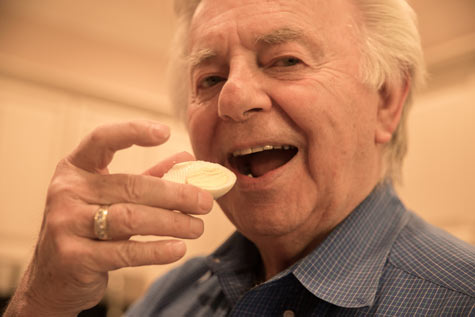
The link between protein and aging is especially apparent following surgery.
Pass the cheese, please! Recent research studies are highlighting the link between protein and aging and the necessity of a protein-rich diet for the elderly. Protein is especially important during occasions of stress, for instance when dealing with a chronic disease or acute illness, or preparing for a medical procedure or hospitalization, when protein is digested less effectively. And even when seniors are healthy, protein is vital to maintaining muscle strength and mass, healthy bones and more.
Nonetheless up to one-third of all older adults aren’t eating adequate levels of protein, for a range of reasons, which can include:
- Taste impairments
- Problems with swallowing
- Monetary constraints
- Decreased appetite
- Dental issues
And, the less active lifestyle that a number of seniors lead further compounds the negative effects of too little protein consumption, including:
- Deteriorating mobility
- Decreased muscle mass and strength
- Longer recuperation times when ill
- Eventual loss of independence
The good thing is, people who do eat recommended amounts of protein have a propensity to continue to maintain independent functionality with tasks including getting dressed and attending to other personal hygiene needs, walking, and climbing stairs. As stated by Wayne Campbell, professor of nutrition science at Purdue University, “While eating an adequate amount of protein is not going to prevent age-associated loss of muscle altogether, not eating enough protein can be an exacerbating factor that causes older adults to lose muscle faster.”
The studies show that protein ought to be acquired from natural food sources, instead of via protein shakes. Suggested protein levels are generally .8 grams of protein per 2.2 pounds of body weight each day; so, for a 120-pound woman, that equates to 48 grams of protein/day. Having said that, for those individuals facing the stressors mentioned previously, the guideline grows to 1.2 – 1.5 grams of protein per 2.2 pounds of body weight.
These protein-rich foods are perfect choices:
- Chicken (28 grams of protein per 3-ounce serving)
- Yogurt (18 grams of protein per 6-ounce serving)
- Cottage cheese (14 grams of protein per ½-cup serving)
- Lentils (9 grams of protein per cup)
- Milk (8 grams of protein per cup)
Of course, be sure to talk with the senior’s health care provider before making any dietary adjustments. Once a dietary plan is approved, let Absolute Companion Care, and our experts in elder care in Towson provide support by planning and cooking nourishing, appetizing meals, picking up food and making sure that the kitchen pantry and refrigerator are filled with nourishing meal and snack choices, offering encouragement to maintain an energetic lifestyle, and more – all leading to better health and wellness.
Email us or call any time at 410-357-9640 to request a free in-home consultation for more information on our experienced elder care in Towson and the surrounding area for cherished loved ones.
